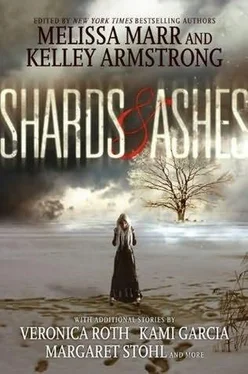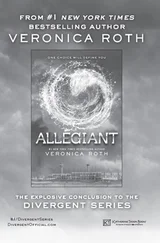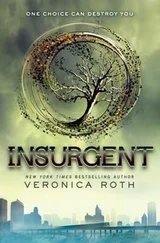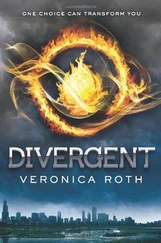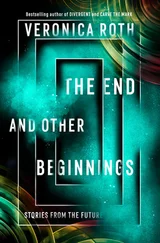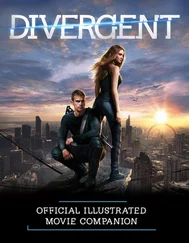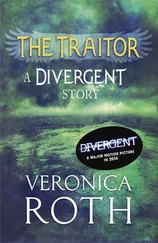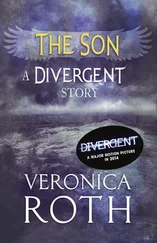“The brand is nothing,” he’d said. “I’ve had worse burns. You know that.”
I’d seen those burns. Some accidental. Some not. Mr. Smith might call Braeden his son, but he slept in the barn and worked from sunrise to sunset, and if he didn’t do a good enough job, he’d be beaten, sometimes burned.
Yet this was different. I saw that glowing metal coming toward Braeden’s back, and I had to drop Priscilla’s hand before I squeezed hard enough to break bones. I gripped my legs instead, my fingers digging in.
The brand sizzled as the metal touched his back. His body convulsed. I swore I smelled the stink of burning flesh. He didn’t cry out, though. They always cried out, even the grown men, sometimes dropping to their knees, howling and weeping. But after that first flinch, Braeden stood firm, gaze straight ahead, biting his lip until blood trickled down his chin.
Next the regulator pressed soot into the wound. That’s when Braeden almost lost it. His eyes bulged with agony, and tears streamed down his cheeks. His gaze rolled my way. His eyes met mine and he mouthed, “Just a burn,” before looking away again.
“He saw you,” Priscilla whispered. “He said something.”
“Cursing me to a thousand hells, I’m sure,” I said, my voice thick.
She put a thin arm around my shoulders. “You did the right thing. Can you imagine if no one had discovered him? A werewolf?” She shuddered. “The last werewolf in the fortress ate three children before he was caught.”
I doubted it. I’d been with Braeden when he changed to a wolf, and he’d never even nipped at me. Priscilla’s story was an old one, passed down as an example of how horrible supernaturals could be and why they must be rooted out at all costs. There probably had been a werewolf. And children might have died in the years leading up to his discovery, but that was hardly unheard of in the fortress. Disease and death stalked the young and old here. It grew worse with every passing year, as supplies and food sources dwindled.
There were no words after the branding. The charges and the sentence had been read beforehand. Now all that remained was the final part of that sentence. The casting out.
A horse-drawn cart waited beside the stage. The regulators prodded Braeden toward it. When he gazed about, as if blinded and befuddled by pain, they gave him a tremendous shove off the stage, and he hit the cart with a thud, crumpling at the bottom. A regulator jumped in after him and forced him to stand. It took a moment for Braeden to get himself steady—there was a post in the cart, where they often had to tie the convicted to keep him upright—but Braeden managed it and stood there as he had on the stage, gaze forward, expression blank.
The crowd followed in a procession behind the cart. Now there was a little spring in their steps. This was the part they looked forward to, as they jostled and jockeyed for a spot near the front. Not to watch a convict cast out. Again, that struck a little too close to everyone’s gravest fear. But they were about to see a sight they’d talk about for days. The Outside.
The cart rolled along the dusty streets, past the wooden buildings. Children too young to watch the branding leaned out the open windows. Mothers tugged at the children, but only halfheartedly. It wasn’t a sight for a child, but fortress life would be better and easier if they understood the alternative.
The cart stopped at the gates, and the regulator took longer than necessary fussing with the locks, making people stamp and twitch and whisper with excitement. I pulled my gaze from Braeden’s whip-striped back and looked up at the structure that kept us safe.
The walls of the fortress stretched twenty feet in the air. Our buildings might rot and list, but no expense would be spared for this wall. Voyager parties traveled for days and lost members to the hybrids and the tribes, all to bring back wood to repair the wall. Sixteen feet up there was a platform that stretched around the perimeter. Guards patrolled it at all times. One was permanently stationed at the gates, bearing one of the few guns we still had from the Old World.
As the gates began to open, Priscilla gripped my arm, her hands trembling.
“Don’t be afraid,” she whispered. “We’re safe here.”
That was the point. That was what this drama was all about. As those gates swung open, there was a collective gasp. A few women who’d fought to the front now shrieked and pressed back into the crowd. Men snorted at their cowardice, but even they shrank as the gates swung open to reveal . . .
Nothing.
That’s what you saw at first. That’s what was so terrifying. The gates opened, and you looked out to see miles of barren, rock-strewn dirt, stretching in every direction.
The sun beat down, baking and cracking the earth. It was so bright that it took a moment for your eyes to adjust. Then you noticed the plain was not empty. Far to the left, there was a mountain, dark with trees and capped with snow. To the right rose a thin ribbon of smoke. You didn’t need to wonder what was at the base. Not a bonfire—no Outsider would be so foolish as to announce his presence with that much smoke. It was a camp, now burning. Torched.
Braeden told me once about coming across a burned camp, back when he was with the tribe. They’d seen the smoke and gone to it, holding back and sending scouts until they were sure the raiding party had left. Then they’d swooped in for the scraps the raiders hadn’t wanted, bits of fur or wood left unscorched. They’d ransacked the bodies, too, taking whatever they could from the corpses of those too proud or too foolish to flee when the raiders sounded their horn.
“We didn’t take the bodies,” Braeden had said. “Sometimes the elders argued about that. Other tribes took them. For meat.”
I remembered how disgusted I’d been. I remembered how angry Braeden got.
“You don’t understand what it’s like out there, Rayne. You do what you have to. I really don’t want to eat another person, but if it was that or starve . . .”
He was right, of course. Later I found out that, sometimes, in the long winter, when someone died in the fortress, their body wasn’t taken out to be burned. People did what they had to, and it was no different in here than it was out there.
There were piles of bones on the landscape, too. We sent out voyagers to scavenge those when one of the craftsmen needed material, but we didn’t bother storing any. The piles weren’t going anywhere, and space inside was already at a premium.
Off to the far left there was a body not yet reduced to bones. Carrion eaters attempted to remedy that, silently ripping flesh from the corpse. From the looks of the body, it had been a hybrid, I could no longer tell what kind. Maybe part bull or part bear or part cat. Those were common ones.
The hybrids were the end result of the overreaching ambition that began with the supernaturals. The minister taught us that supernaturals had convinced us to use their DNA, but Braeden’s family told him it had been the humans’ idea. They’d rounded up the supernaturals and taken that DNA. The scientists had started with careful, controlled studies, but then the wars for food and land broke out, and there wasn’t time for caution.
Eventually they decided there was no need to limit themselves to creating ultrapowerful werewolf soldiers or spell-casting assassins. If they could use the DNA of supernaturals, could they use animals, too? That was near the end of the Old World, when the situation was so dire that no one cared about limits. So they created hybrids. Then the Great Storms came and the Final War came, and when it ended, the hybrids and modified supernaturals broke out of captivity and fought back. It took only a few years for the first fortress to rise, shielding a small group of uninfected humans against that endless wasteland overrun with hybrids and roving bands of survivalists.
Читать дальше
